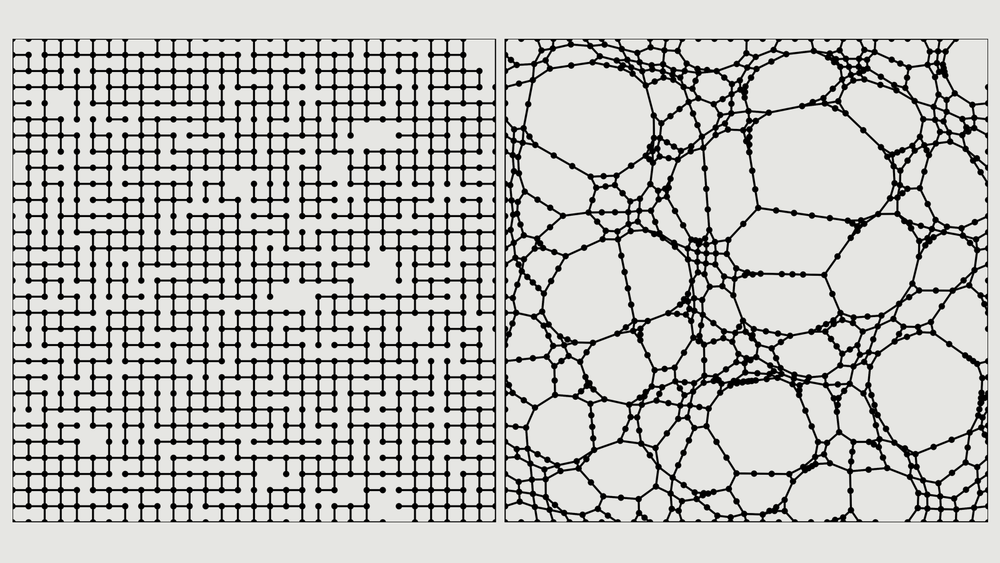Probability and Statistics

Stochastic as the "mathematics of chance" plays an important role. It examines stochastic processes and their long term behavior - for example spatial branchings, which describe the spread of populations. Statistics encompass all the quantitative methods, which serve to filter information from data (data mining).
Probability theory: recognizing structure within randomness
Probability theory is applied in many areas such as business science and computer science. In addition, it has many connections to other areas of mathematics, such as analysis, graph theory and mathematical physics.
Our groups are active in the following areas of probability theory:
- with stochastic processes such as random walks in random networks and environments as models for transport in inhomogeneous medium.
- with random walks with self-interaction, for example, self-reinforcing and self-repelling random walks. These models offer fascinating mathematical challenges and contribute to the understanding of self-reinforcing effects within complex biological systems.
- with the research of randomized processes in signal processing and data analysis. These can often be described with the assistance of structured random matrices and then analyzed using methods from probability theory.
Statistics: data based modelling and analysis of random phenomena
In statistics, data are seen as been random and are modelled and analyzed using probability theory. As data analysis is becoming increasingly important in all walks of life, alongside fundamental mathematical knowledge expertise in computer science, in particular in the area of machine learning, is essential.
Our statistics group is engaged in modeling the dependencies between data. To do this, they follow the copula approaches, which permit an independent choice of models for each individual characteristic, as well as a model of the independent structure.
In particular, we research the class of the Vine Copulas, which enables realistic data modelling in business, finance, insurance, hydrology, engineering and life sciences. Alongside the development of theoretical methods such as model choice and estimates, in statistics we also develop software for complex data structures.
